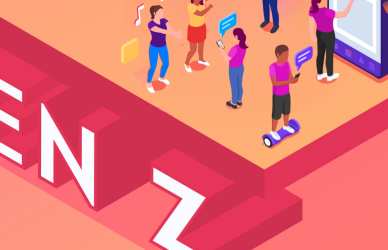Welcome to the world of job hunts and hiring, where finding the right fit is like discovering the perfect puzzle piece. But here’s the twist: it’s not just about technical expertise; soft skills are the secret sauce that makes the hiring journey complete. In this blog, let’s unravel the importance of soft skills in the modern hiring scene.
Understanding Soft Skills in the Workplace
Let’s start with the basics. Soft skills are like the personality traits and interpersonal abilities that go beyond what’s written on a resume. They’re the unsung heroes that influence how well someone works with others, communicates, and navigates the challenges of the workplace.
Why Soft Skills Matter in Modern Hiring
Team Harmony and Collaboration:
Imagine a workplace as a well-choreographed dance. Soft skills like communication, teamwork, and adaptability are the dance moves that ensure everyone is in sync. They’re the difference between a smooth waltz and a clumsy shuffle.
Effective Communication for Success:
Think of soft skills as the language of success. Strong communication skills, both verbal and written, are like a well-crafted script. They help convey ideas clearly, preventing misunderstandings and fostering a positive work environment.
Problem-Solving Prowess:
The workplace is full of puzzles waiting to be solved. Soft skills such as critical thinking and problem-solving are like the Sherlock Holmes of the professional world. They enable employees to analyze situations, think creatively, and find solutions efficiently.
Adaptability: Thriving in Change:
The modern workplace is dynamic, much like a constantly changing movie set. Soft skills like adaptability and flexibility ensure that employees can handle unexpected plot twists, evolving with the storyline of the organization.
The Soft Skills Showcase in Hiring Practices
Resumes Beyond Words:
Resumes are like movie trailers; they give a glimpse, but there’s more to the story. Soft skills often shine through experiences and achievements. Recruiters look for clues that reveal qualities like leadership, communication, and adaptability.
Interviews as Auditions:
Think of interviews as auditions for the main role. This is where soft skills take center stage. Recruiters assess how candidates handle questions, communicate, and respond to different scenarios—a preview of their performance in the workplace.
Reference Checks: Behind-the-Scenes Insights:
Reference checks are like reading reviews before watching a movie. They provide behind-the-scenes insights into how a candidate’s soft skills contributed to their success in previous roles.
Cultivating Soft Skills in the Workplace
Training Programs as Skill Workshops:
Picture training programs as workshops for skill improvement. Soft skills can be nurtured and refined through ongoing training. It’s like giving employees the tools to enhance their communication, teamwork, and problem-solving abilities.
Mentorship as Guided Rehearsals:
Mentorship is like having a seasoned actor guide a newcomer through rehearsals. Experienced mentors can provide valuable insights on developing soft skills, offering guidance based on their own experiences.
Cultivating a Positive Work Culture:
The workplace culture is the stage where soft skills take centre stage. A positive and inclusive culture encourages employees to showcase their soft skills, fostering collaboration, open communication, and adaptability.
In conclusion, soft skills are not just supporting characters; they’re the heroes of the hiring narrative. In a world where technical skills are like the script, soft skills bring the story to life. As we navigate the modern hiring landscape, let’s remember that a candidate’s soft skills are not just additional features; they’re the essence of a successful performance in the workplace.






